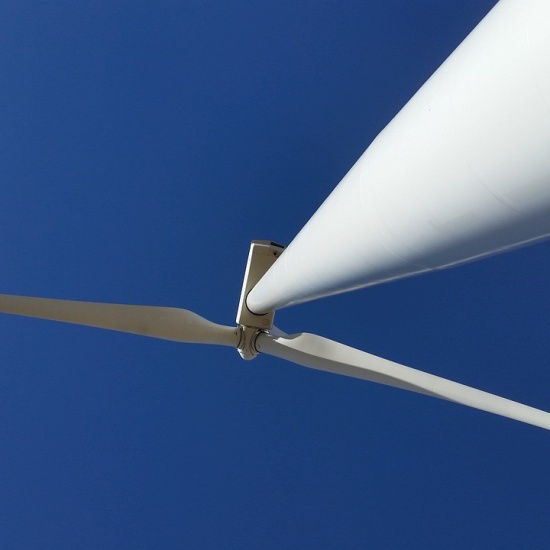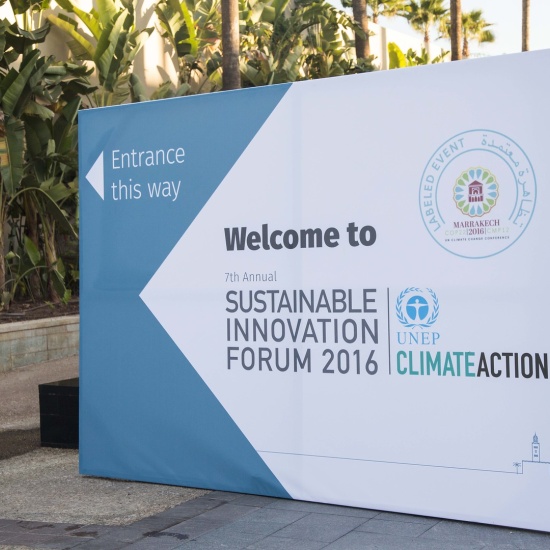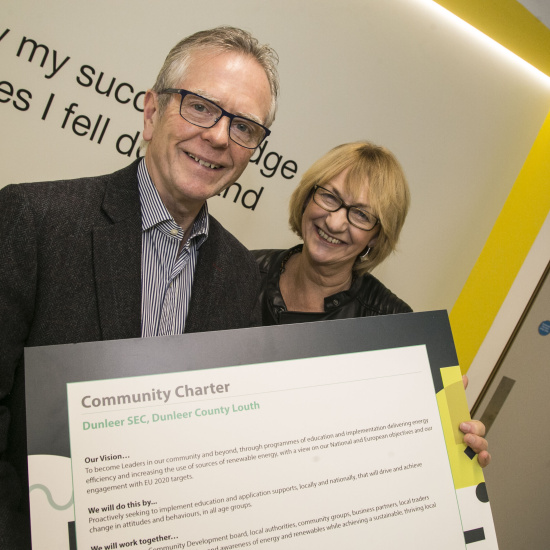What's missing on climate action?
The disciplines of engineering and economics have enabled us to create astonishing materials and machines, and to use them to improve our everyday lives.

Through engineering we've transformed basic wood-built huts to highly energy efficient dwellings, swapped horses for electric vehicles, and we are now carrying in our pockets 100,000 times the computing power used to put humans on the moon back in 1969. Through economics we've reduced global poverty significantly, created businesses that generate profits and deliver the products and services others need and desire. And many of us working in this economy find fulfilment in our contributions to human development.
The systems we have created are complex and beyond the simplifications above. They have given us so much. But they are not perfect. Critically, these systems are still intrinsically linked to the use of energy sourced from fossil fuels (gas, oil, coal, and peat), the cause of the current climate crisis. In Ireland, approximately 90% of our energy comes from fossil fuels with this figure reducing to 80% globally.
Impact of climate change
Whilst we have made significant progress on sustainable energy, our economic system has so far failed to provide solutions quickly enough to save us from ourselves. We continue to increase concentrations of CO2 in our atmosphere to levels now well over 400ppm. This is 47% increase since the beginning of the Industrial Age and the highest in over 800,000 years.
- Rising sea levels
- Shrinking sea ice
- Extreme weather events (flooding, wildfires)
- Mass species extinctions
- Drought
- Tens of millions losing their homes
are all examples of the impact of climate change.
Despite these impacts, it seems that something in the human psyche is preventing us from acting like we are in an emergency, a climate crisis that will affect us all. We might understand that the systems we have created are not yet compatible with a healthy ecosystem and the potential for a thriving human race, yet we are not acting quickly enough to change our destructive path.
We need to consider deeply if we have faith that developing technology and existing market systems will save us in their current form. Will we be able to disperse the necessary technologies through our society quickly enough, as science dictates we must? Will our children and their children enjoy a breathable atmosphere that provides the freedom to choose a life purpose and thrive? Or will they be forced to revert to survival?
How Governments are tackling climate change
Governments are doing much to drive the necessary change. Global targets are set (the Paris Agreement), clean technologies are being developed and promoted (insulation, efficient electric motors and lights, wind turbines, solar panels etc.); and regulations, taxes, and other economic instruments are being deployed (carbon trading systems and taxes, tax breaks, grants).
Nationally we have significant momentum on climate action. Ireland is a world leader on renewable electricity, and over 400,000 householders have taken a Government grant to reduce fossil fuel use in the home. The latest Irish Government commitment is for 7% annual GHG emissions reductions for 2021-2030, and a net-zero reduction goal for 2050, raising our ambition significantly.
The recently approved Climate Action Bill is a piece of legislation that will enshrine the ambition on climate in law. A lot of hard work is underway to turn these ambitions into action. But do we have all the ingredients necessary to align the action with the science?
Lessons from COVID-19
There are many lessons we can take from the recent response to the global health pandemic that are applicable to accelerating climate action. When risks to our lives are imminent, the pace and scale at which governments and citizens can respond have illustrated how we can flex our systems to support and care for each other. Many governments around the world have provided strong leadership and communications, raising global awareness of the issues and generating personal connection to them. I wear a mask to the shops not because it will necessarily prevent me from contracting COVID 19, but because it might prevent me from spreading it.
But the parallels for climate action aren't yet established. We are not yet acting like we're in a climate emergency that affects us all. We have not ceased activities that continue to drive the global carbon balance in the wrong direction, even though we know how to do it, and even though the consequences of our failure far outweigh that of any pandemic. Is it that, beyond the lack of immediate threat to many of our lives, doing so would damage our created systems? Have we become so comfortable that careering towards oblivion is less scary than reinvention? Are we missing a connection to the countless beings (human and non-human) already negatively affected by climate change?
Whatever the answers to these questions, our connection to our natural world and ourselves has taken a serious and potentially fatal hit as we pursue wealth and prosperity. Our utter reliance for survival on the natural world rather than man-made technologies has been lost. In what may seem to many of us as a complicated world, some very fundamental facts appear to have been submerged. Our lungs evolved to breathe oxygen. That oxygen is produced by trees (perhaps the ultimate technology) as they convert carbon dioxide into breathable gas. No trees, no breathable air, no us. No future generations, no kids, no grandkids. No economics, no engineering.
Looking forward
Looking beyond engineering and economics, in SEAI we are expanding the range of disciplines we apply in our efforts to solve the climate crisis. Together with Government, we are looking closely at behavioural science and applying it in our communications. This includes making sure people are made aware of Government supports at key decision-making points, like when buying or renovating a house or getting a new car. We want to know how we can support and convince more citizens to take action to reduce their use of fossil fuels (gas, oil, peat, coal) more quickly so to reduce their contribution to the carbon balance in our atmosphere.
And of course, we are using more traditional approaches, for example:
- Providing economic incentives on behalf of Government for homes and businesses
- Providing information on the technologies that can help us
- And on our latest thinking on using behavioural science for effective climate policy
- We are developing more supports for bringing people together for community-based action
We will continue to work with Government to develop these and new initiatives.
The rest is up to us
The Dali Lama was recently quoted saying, "The 7 billion human beings on Earth need a sense of universal responsibility as our central motivation to rebalance our relations with the environment. Appreciating the sense of oneness of humanity in the face of the challenge of global warming is the real key to our survival".
It's up to each of us to consider how we might find our own connection to ourselves and to each other. This could mean getting out into nature, increasing our appreciation for the natural world, returning to the child-like state of wonder at what nature has created. The challenge for policy makers and those committed to driving climate action is to find ways to connect us all to the urgent need to act, similar to the urgency communicated during this current pandemic.
Ultimately, our collective journey must lead to life-affirming actions that significantly and immediately reduce our use of fossil fuels in support of a healthy planet. When you realise that you, your loved ones, your children, everyone you lay eyes on, are a living and breathing part of the biosphere, and that we are all tethered to it for our very survival, taking action may occur as necessary, not optional.




